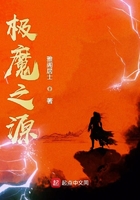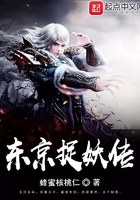Here in a dark corner was also Mary Pavlovna, busy with a little, fair-haired girl, who kept prattling in her sweet, childish accents.
"How nice that you have come," she said to Nekhludoff.
Have you seen Katusha? And we have a visitor here," and she pointed to the little girl.
Here was also Anatole Kryltzoff with felt boots on, sitting in a far corner with his feet under him, doubled up and shivering, his arms folded in the sleeves of his cloak, and looking at Nekhludoff with feverish eyes. Nekhludoff was going up to him, but to the right of the door a man with spectacles and reddish curls, dressed in a rubber jacket, sat talking to the pretty, smiling Grabetz. This was the celebrated revolutionist Novodvoroff. Nekhludoff hastened to greet him. He was in a particular hurry about it, because this man was the only one among all the political prisoners whom he disliked. Novodvoroff's eyes glistened through his spectacles as he looked at Nekhludoff and held his narrow hand out to him.
"Well, are you having a pleasant journey?" he asked, with apparent irony.
"Yes, there is much that is interesting," Nekhludoff answered, as if he did not notice the irony, but took the question for politeness, and passed on to Kryltzoff.
Though Nekhludoff appeared indifferent, he was really far from indifferent, and these words of Novodvoroff, showing his evident desire to say or do something unpleasant, interfered with the state of kindness in which Nekhludoff found himself, and he felt depressed and sad.
"Well, how are you?" he asked, pressing Kryltzoff's cold and trembling hand.
"Pretty well, only I cannot get warm; I got wet through,"
Kryltzoff answered, quickly replacing his hands into the sleeves of his cloak. "And here it is also beastly cold. There, look, the window-panes are broken," and he pointed to the broken panes behind the iron bars. "And how are you? Why did you not come?"
"I was not allowed to, the authorities were so strict, but to-day the officer is lenient."
"Lenient indeed!" Kryltzoff remarked. "Ask Mary what she did this morning."
Mary Pavlovna from her place in the corner related what had happened about the little girl that morning when they left the halting station.
"I think it is absolutely necessary to make a collective protest," said Vera Doukhova, in a determined tone, and yet looking now at one, now at another, with a frightened, undecided look. "Valdemar Simonson did protest, but that is not sufficient."
"What protest!" muttered Kryltzoff, cross and frowning. Her want of simplicity, artificial tone and nervousness had evidently been irritating him for a long time.
"Are you looking for Katusha?" he asked, addressing Nekhludoff.
"She is working all the time. She has cleaned this, the men's room, and now she has gone to clean the women's! Only it is not possible to clean away the fleas. And what is Mary doing there?" he asked, nodding towards the corner where Mary Pavlovna sat.
"She is combing out her adopted daughter's hair," replied Rintzeva.
"But won't she let the insects loose on us?" asked Kryltzoff.
"No, no; I am very careful. She is a clean little girl now. You take her," said Mary, turning to Rintzeva, "while I go and help Katusha, and I will also bring him his plaid."
Rintzeva took the little girl on her lap, pressing her plump, bare, little arms to her bosom with a mother's tenderness, and gave her a bit of sugar. As Mary Pavlovna left the room, two men came in with boiling water and provisions.















